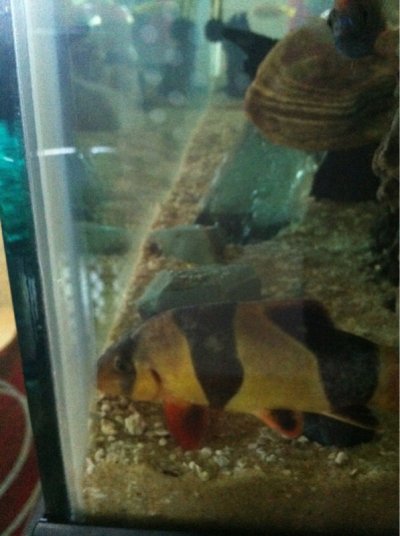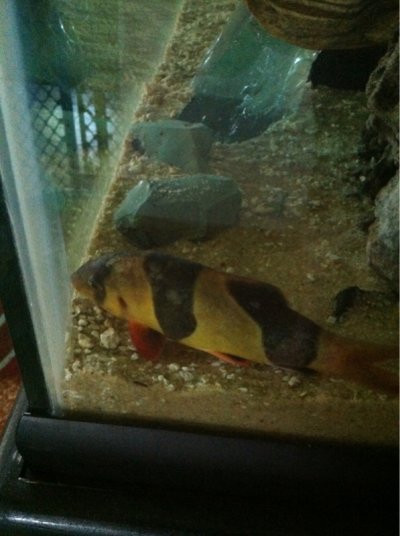Mommachef
Aquarium Advice Activist
Okay my 110 gallon has become infested with ich. I've been working the graveyard shift the past 2 nights and haven't spent the time in my tanks as I usually do, and now I'm paying for it. I've read so much about treating with salt and heat, medicating, WC's, etc but I'm still not sure what is the best approach for my level of experience treating it and for my particular tank. This is my first exposure to it. I did a 20 gallon water change this evening and started turning the heat up, as well as adding some dissolved aquarium salt (I didn't measure it to a full dose because I'm not sure how much I need to add, but it was roughly 8 tablespoons and I figured that was better than nothing). I usually add a little bit of salt during water changes just because. I am very hesitant to use meds because I have clown loaches and a catfish that I am worried about hurting, and because I'm broke for a few more days. But I think that my baby loach (he's about 2 inches long, barely) who has it the worst is in the worst shape of everyone and I want to get him treated quickly before I lose him, because IF he is on day 3 of this he's probably close to death. =*( A separate tank for him is not an option ATM (I have a 2.5 gallon that I could put him in but I have no filter or bubbler or anything for). Also, now that I have noticed it I am seeing that my other fish (including my beloved frontosa) are swimming weird and bouncing off of the substrate like they're itchy.
Should I attempt the medicine route or should I keep up with the salt and wc's, and how much salt? How long does it take to work with the salt before it starts to give the fish some relief (I know baby loach is suffering and I can't stand seeing it, it's like when my kids are sick)? I'm also going to take some water out to help with the heating and oxygen levels in the morning. I think I am going to treat my goldfish for it as well while I'm at it, because I go from the cichlids tank to the goldies when I do waters and I'm sure they have been contaminated and an attack is in the near future for them now too. I might treat them with the meds because it is A) a smaller tank and B) I don't have anything but the Goldies in there. (Maybe, I'm not sure yet.) however with them I am worried about the high temperature(kind of why I thought medicating them may be better), I also add salt to their tank when I change waters. I am in a panic over this, I keep getting up and going to check on everyone.
Should I attempt the medicine route or should I keep up with the salt and wc's, and how much salt? How long does it take to work with the salt before it starts to give the fish some relief (I know baby loach is suffering and I can't stand seeing it, it's like when my kids are sick)? I'm also going to take some water out to help with the heating and oxygen levels in the morning. I think I am going to treat my goldfish for it as well while I'm at it, because I go from the cichlids tank to the goldies when I do waters and I'm sure they have been contaminated and an attack is in the near future for them now too. I might treat them with the meds because it is A) a smaller tank and B) I don't have anything but the Goldies in there. (Maybe, I'm not sure yet.) however with them I am worried about the high temperature(kind of why I thought medicating them may be better), I also add salt to their tank when I change waters. I am in a panic over this, I keep getting up and going to check on everyone.


